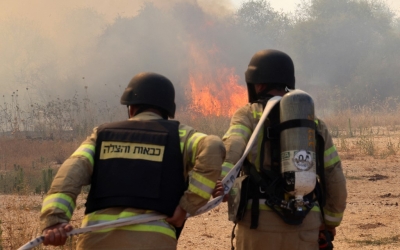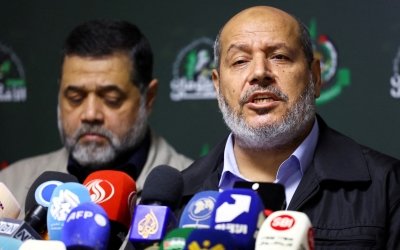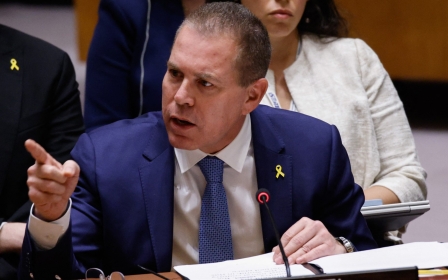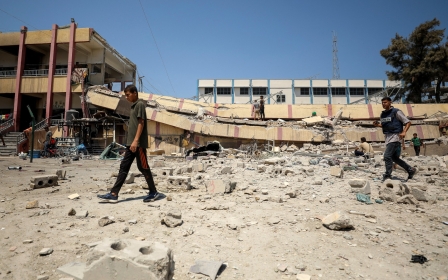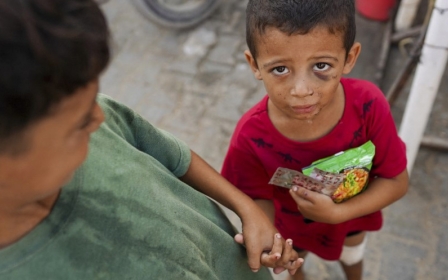War on Gaza: Israel shrinks 'humanitarian zone’ with new Deir al-Balah ejection orders
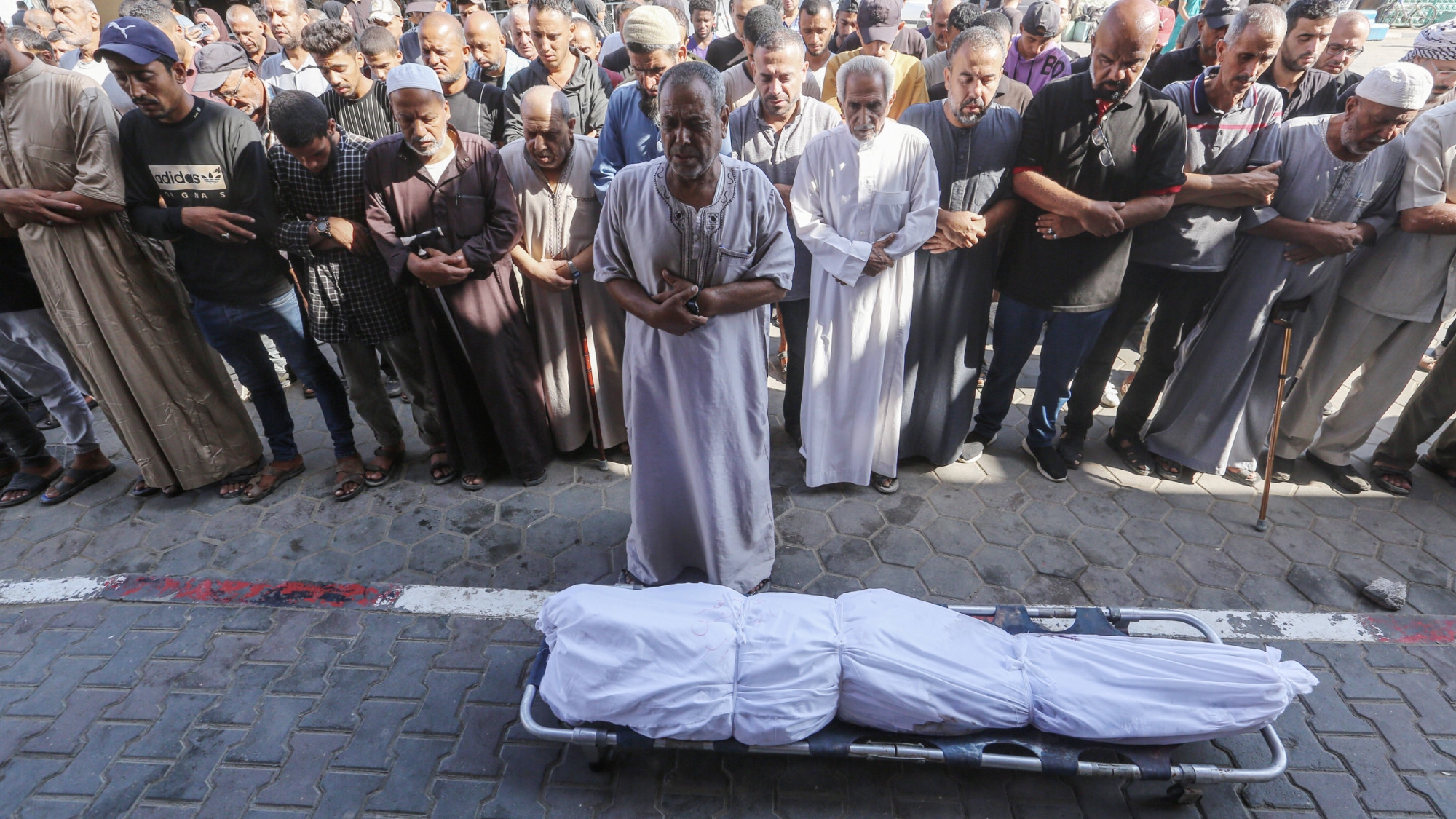
The Israeli military issued new ejection orders for displaced Palestinians packed in the ever-shrinking so-called “humanitarian zone” in the central Gaza Strip, as bombing in the region intensified.
The new orders affect parts of the small Deir al-Balah city in central Gaza, where most displaced Palestinians have been taking shelter for months, particularly after the invasion of Rafah in May.
Deir al-Balah was at the heart of Israel’s “humanitarian zone” where civilians could take safe shelter. However, the military has repeatedly bombed such areas since the war began over 10 months ago.
Hundreds of thousands of Palestinians are taking shelter in the city, in makeshift camps, schools and other civilian facilities.
Many families are now on the move again after the latest orders, looking for new shelters within the “humanitarian zone” which the Israeli military has decreased in size several times in recent weeks.
New MEE newsletter: Jerusalem Dispatch
Sign up to get the latest insights and analysis on Israel-Palestine, alongside Turkey Unpacked and other MEE newsletters
The latest orders come as Israeli troops push closer to eastern and southern Deir al-Balah.
The area, along with the bordering north and western Khan Younis, has been under increased Israeli bombing in recent days.
Central Deir al-Balah is one of the few remaining areas across the Gaza Strip that Israeli troops have not entered.
On Tuesday, Israeli fighter jets bombed a key market in Deir al-Balah, killing at least nine Palestinians.
A total of 50 Palestinians were killed by Israeli forces on Tuesday across the Gaza Strip, according to the Palestinian health ministry.
Israeli forces have killed at least 40,223 Palestinians in Gaza since 7 October, including at least 13,000 children and 7,000 women. More than 10,000 others are missing and presumed dead under the rubble.
An additional 635 have been killed across the occupied West Bank, including 147 children and nine women.
Palestinian attacks have killed around 1,650 Israelis, including around 300 women, over 30 children and at least 700 soldiers and other militarised forces.
Lebanon escalation
In nearby Lebanon, fighting between Hezbollah and Israel escalated on Wednesday, as Israeli air strikes hit deep in Lebanon’s Bekaa Valley overnight for the second time in two days.
At least five people were killed in Israeli strikes on Lebanon’s east and south on Tuesday, according to the Lebanese health ministry.
Hezbollah said it retaliated to the Bekaa Valley strike by attacking Israeli military sites and posts in the Israeli-occupied Golan Heights Amiad kibbutz in northern Israel, located approximately 22 kilometres from the Lebanese border.
At least one person was mildly wounded in Hezbollah rocket attacks in the Golan Heights, with several homes directly hit, according to Israeli media.
The Israeli military accused Hezbollah of “firing indiscriminately at Israeli civilians” and vowed that “we will act accordingly”.
In southern Lebanon, an Israeli air strike killed a senior member of Fatah’s armed wing, named Khalil Makdah, in the city of Sidon.
Israeli strikes in southern Lebanon since the start of the war have targeted Hezbollah, as well as other armed Lebanese and Palestinian groups that have claimed attacks against Israel.
However, Fatah - which has a large presence in Palestinian refugee camps in Lebanon - has not claimed any attacks against Israel.
The West Bank-based Tawfiq Tirawi, a senior member of Fatah's central committee, told AFP the “assassination” of Makdah “is further proof that Israel wants to ignite a full-scale war in the region”.
Netanyahu sabotaging talks
Meanwhile, Israeli Prime Minister Benjamin Netanyahu has been accused once again of sabotaging the ceasefire talks after American officials expressed optimism following talks earlier this week.
On Tuesday, the Israeli leader reportedly said he will not give up control of the Netzarim Corridor, which separates north and south Gaza, and the Philadelphi Corridor, which borders Egypt, a hardline position that Hamas rejects.
He reportedly made the comments to the families of some of the slain soldiers.
“Israel won’t leave the Philadelphi Corridor and the Netzarim Corridor under any circumstances,” he said, according to Israeli media reports.
He also told them “he is not sure there will be a deal”.
An unnamed Israeli official in the negotiating team said that Netanyahu’s remarks aim to sabotage a deal, according to Kan public broadcaster.
Such “maximalist statements” by Netanyahu “are not constructive”, a senior Biden administration official told Reuters.
The official added that they “risk the ability of implementing... working level, technical talks to be able to move forward".
The Hostages Families Forum, an umbrella group representing Israeli captives in Gaza, also blamed Netanyahu for the failure to achieve a deal.
“The full and direct responsibility for the fate of the negotiations is on the prime minister. His incessant attempts to blame the negotiation teams, the mediators, the press, the hostages' families and even the hostages themselves are pulling the wool over the public's eyes and the entire world,” the forum said in a statement.
"The prime minister is the authority and therefore he is responsible. If he is so successful at conducting negotiations, as he describes himself to be, he should fly out himself and act to return the hostages that were abandoned on his watch and for ten months since," it added.
Middle East Eye delivers independent and unrivalled coverage and analysis of the Middle East, North Africa and beyond. To learn more about republishing this content and the associated fees, please fill out this form. More about MEE can be found here.


